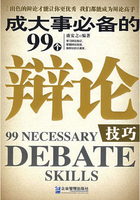There was an inspector of the military schools, whose business it was to make an annual report on each pupil, whether educated at the public expense or paid for by his family. I copied from the report of 1784 a note which was probably obtained surreptitiously from the War Office. I wanted to purchase the manuscript, but Louis Bonaparte bought it. I did not make a copy of the note which related to myself, because I should naturally have felt diffident in making any use of it. It would, however, have served to show how time and circumstances frequently reversed the distinctions which arise at school or college. Judging from the reports of the inspector of military schools, young Bonaparte was not, of all the pupils at Brienne in 1784, the one most calculated to excite prognostics of future greatness and glory.
The note to which I have just alluded, and which was written by M. de Kerralio, then inspector of the military schools, describes Bonaparte in the following terms:
INSPECTION OF MILITARY SCHOOLS
1784.
REPORT MADE FOR HIS MAJESTY BY M. DE KERALIO.
M. de Buonaparte (Napoleon), born 15th August 1769, height 4 feet 10 inches 10 lines, is in the fourth class, has a good constitution, excellent health, character obedient, upright, grateful, conduct very regular; has been always distinguished by his application to mathematics. He knows history and geography very passably. He is not well up in ornamental studies or in Latin in which he is only in the fourth class. He will be an excellent sailor. He deserves to be passed on to the Military School of Paris.
Father Berton, however, opposed Bonaparte's removal to Paris, because he had not passed through the fourth Latin class, and the regulations required that he should be in the third. I was informed by the vice- principal that a report relative to Napoleon was sent from the College of Brienne to that of Paris, in which he was described as being domineering, imperious, and obstinate.
--[Napoleon remained upwards of five years at Brienne, from April 1779 till the latter end of 1784. In 1783 the Chevalier Keralio, sub-inspector of the military schools, selected him to pass the year following to the military school at Paris, to which three of the best scholars were annually sent from each of the twelve provincial military schools of France. It is curious as well as satisfactory to know the opinion at this time entertained of him by those who were the best qualified to judge. His old master, Le Guille, professor of history at Paris, boasted that, in a list of the different scholars, he had predicted his pupil's subsequent career.
In fact, to the name of Bonaparte the following note is added: "a Corsican by birth and character--he will do something great, if circumstances favour him." Menge was his instructor in geometry, who also entertained a high opinion of him. M. Bauer, his German master, was the only one who saw nothing in him, and was surprised at being told he was undergoing his examination for the artillery.--Hazlitt.]--I knew Bonaparte well; and I think M. de Keralio's report of him was exceedingly just, except, perhaps, that he might have said he was very well as to his progress in history and geography, and very backward in Latin; but certainly nothing indicated the probability of his being an excellent seaman. He himself had no thought of the navy.
--[Bourrienne is certainly wrong as to Bonaparte having no thought of the navy. In a letter of 1784 to the Minister of War his father says of Napoleon that, "following the advice of the Comte de Marbeuf, he has turned his studies towards the navy; and so well has he succeeded that be was intended by M. de Keralio for the school of Paris, and afterwards for the department of Toulon. The retirement of the former professor (Keralio) has changed the fate of my son."
It was only on the failure of his intention to get into the navy that his father, on 15th July 1784 applied for permission for him to enter the artillery; Napoleon having a horror of the infantry, where he said they did nothing. It was on the success of this application that he was allowed to enter the school of Parts (Iung, tome i. pp.
91-103). Oddly enough, in later years, on 30th August 1792, having just succeeded in getting himself reinstated as captain after his absence, overstaying leave, he applied to pass into the Artillerie de la Marine. "The application was judged to be simply absurd, and was filed with this note, 'S. R.' ('sans reponse')" (Iung, tome ii. p. 201]--In consequence of M. de Keralio's report, Bonaparte was transferred to the Military College of Paris, along with MM. Montarby de Dampierre, de Castres, de Comminges, and de Laugier de Bellecourt, who were all, like him, educated at the public expense, and all, at least, as favorably reported.
What could have induced Sir Walter Scott to say that Bonaparte was the pride of the college, that our mathematical master was exceedingly fond of him, and that the other professors in the different sciences had equal reason to be satisfied with him? What I have above stated, together with the report of M. de Keralio, bear evidence of his backwardness in almost every branch of education except mathematics. Neither was it, as Sir Walter affirms, his precocious progress in mathematics that occasioned him to be removed to Paris. He had attained the proper age, and the report of him was favourable, therefore he was very naturally included among the number of the five who were chosen in 1784.
In a biographical account of Bonaparte I have read the following anecdote:--When he was fourteen years of age he happened to be at a party where some one pronounced a high eulogium on Turenne; and a lady in the company observed that he certainly was a great man, but that she should like him better if he had not burned the Palatinate. "What signifies that," replied Bonaparte, "if it was necessary to the object he had in view?"
This is either an anachronism or a mere fabrication. Bonaparte was fourteen in the year 1783. He was then at Brienne, where certainly he did not go into company, and least of all the company of ladies.















